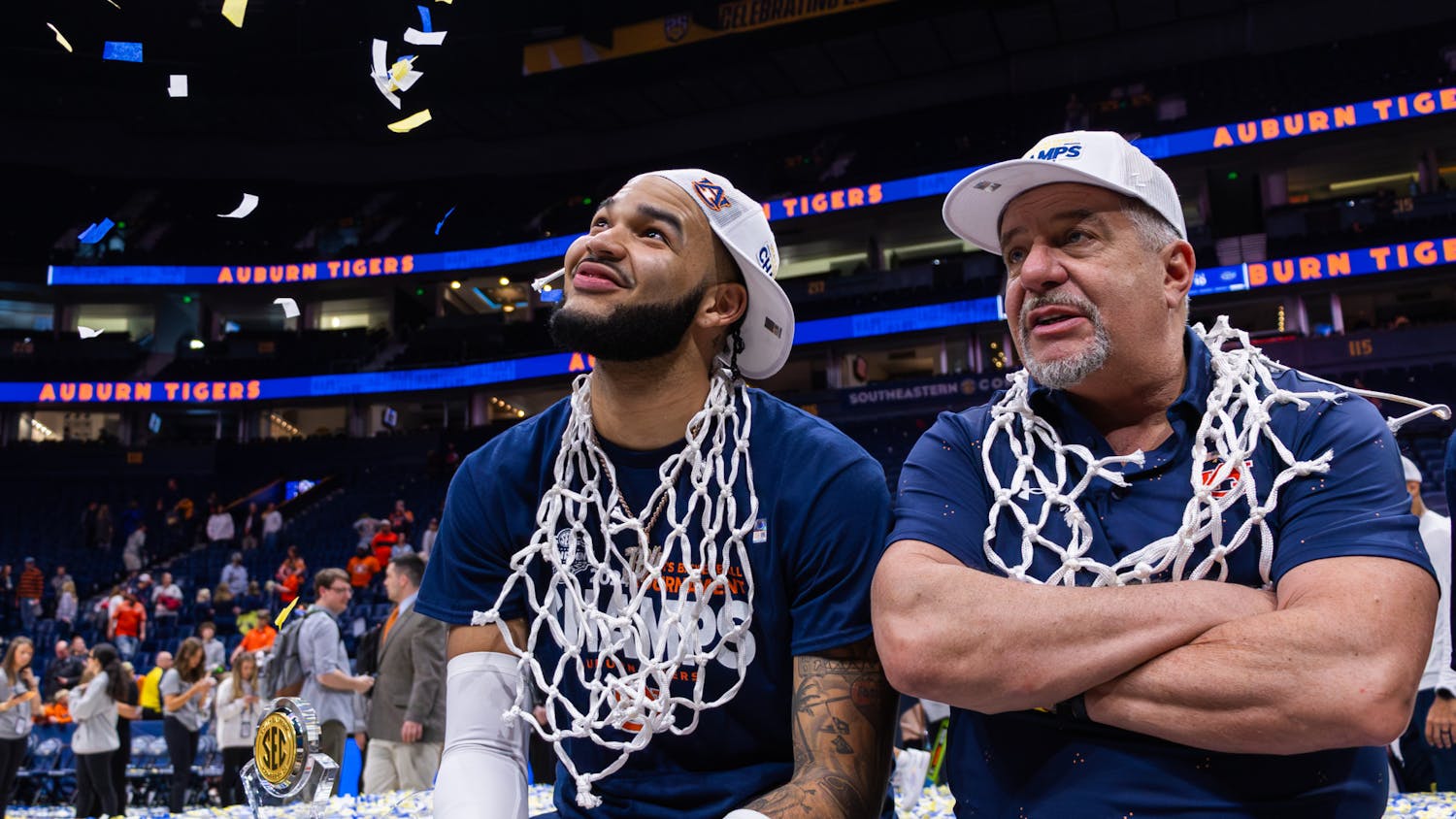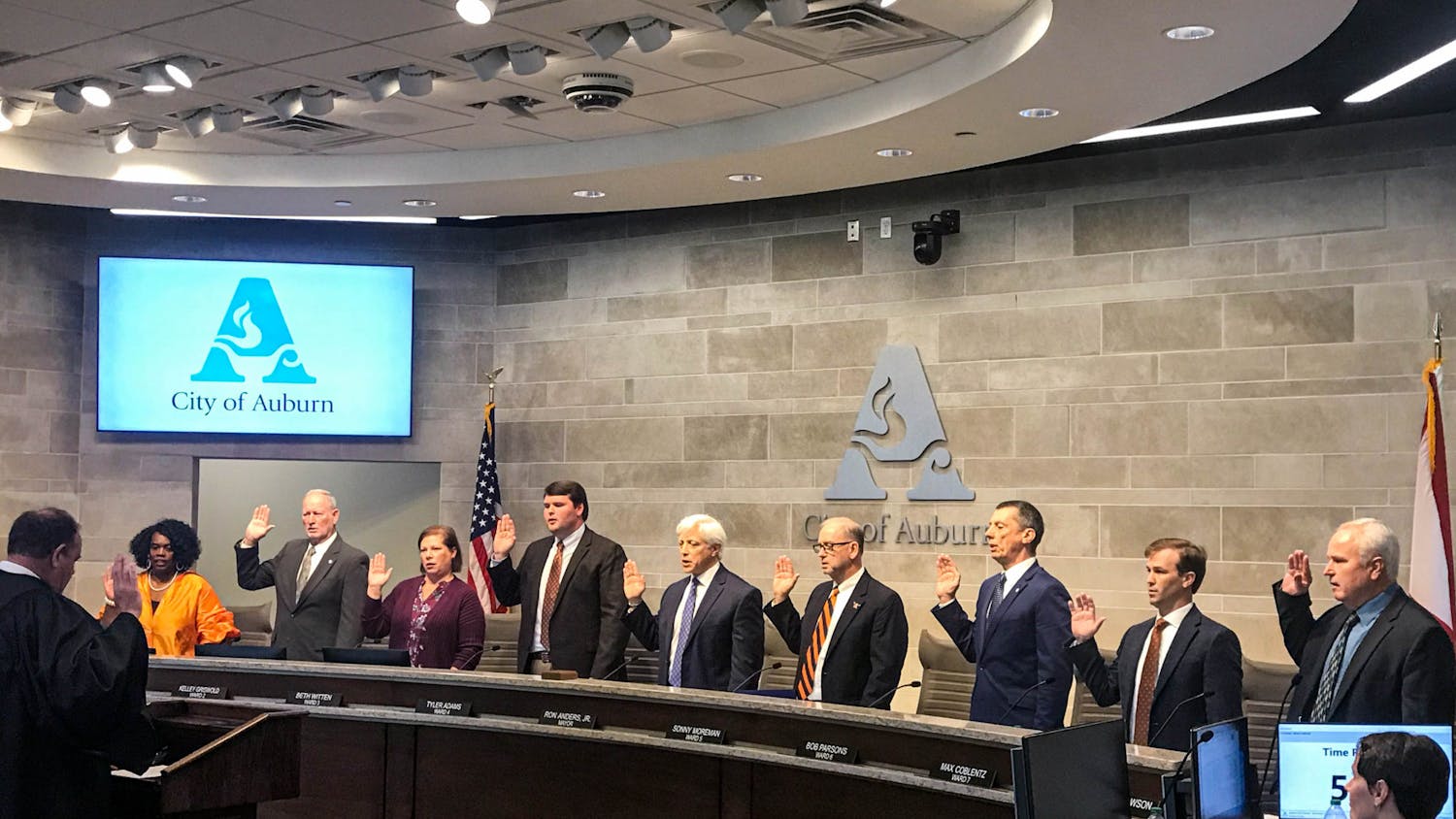Amid low voter turnout, the long road that has been the U.S. Senate race for Attorney General Jeff Sessions' former seat just got a little bit longer, as incumbent Sen. Luther Strange and former Chief Justice Roy Moore will face each other in a September runoff for the Republican nomination.
Republican voters headed to the polls Tuesday to cast their ballots in what turned out to be a mostly three-way contest between Strange, Moore and Rep. Mo Brooks.
Final numbers aren't in yet, but Moore has received the most amount of votes, with 39.6 percent of the vote at publication. Strange currently sits at 32 percent and Brooks at 20.3 percent. In order to avoid a runoff, a candidate had to get more than 50 percent of the total vote.
In Lee County, Moore finished with 36.7 percent, Strange with 32.8 percent and Brooks with 22.5 percent of the vote.
Despite far larger coffers and almost full support from Washington — with the Senate Leadership Fund pushing out numerous ads in favor of Strange and an endorsement from President Donald Trump, who carried the state in the 2016 general election with 62.9 percent of the vote — Strange still couldn’t edge out a majority of votes in the Republican primary.

Strange raised $2.9 million this year through July, compared to Moore’s almost $460,000 and Brooks’ almost $540,000, according to campaign finance filings with the Federal Election Commission.
Moore rose to national prominence for being removed from office as Alabama Supreme Court chief justice in 2003 after refusing to remove a Ten Commandments monument from the state judicial building. He made his way into national headlines again in 2016 after defying a federal order to issue marriage licenses to same-sex couples.
Moore ran for governor in 2006 and 2010 but was unable to make it out of the primaries, where he lost by large margins both years. He announced his intention to run in the special election after resigning from the Supreme Court in April.
Earlier today, Alabama Secretary of State John Merrill predicted voter turnout could be as low as 10 to 15 percent of registered voters, which equates to between 300,000 and 500,000 voters.
Though final numbers aren’t yet in, it appears Merrill's prediction was accurate. Only 11.5 percent of eligible voters in Lee County went to the polls today.
For comparison, over one million Alabama residents voted in the 2016 Senate primaries, an election with far fewer implications than today’s as Alabama political powerhouse Sen. Richard Shelby was in no real danger of losing the seat he’s held since 1987. Though the 2016 Senate primaries were on the same ballots as the presidential primaries.
On the Democratic side, Doug Jones easily captured the nomination with 63.6 percent of the vote at publication.
Jones, a former federal prosecutor from Birmingham who successfully prosecuted two Ku Klux Klan members for their involvement in the 1963 Birmingham bombing of a black Baptist church, was endorsed by prominent Democrats including former Vice President Joe Biden, Rep. Terri Sewell of Alabama and Rep. John Lewis of Georgia.
Some pundits have floated the idea that Jones and the Democratic party could capitalize on the polarizing nature of Moore if he ultimately secures the Republican nomination. But the last time Alabama went blue in a Senate election was in 1990, when Howell Heflin, who Jones once worked for, was re-elected. Sessions took over Heflin’s seat in 1997 after his retirement.
Trump’s appointment of Sessions to the position of U.S. attorney general started a game of Alabama musical chairs that ended with Strange receiving the interim appointment to the Senate from then-Gov. Robert Bentley.
Bentley would eventually be ousted from office shortly after Strange’s appointment, when state legislators decided they could only handle so many scandals and pressured him to resign. At the time, Strange's office was investigating Bentley for campaign finance violations and alleged public corruption.
In the days leading up to the primary, the president continued to show his support for Strange on Twitter, tweeting four times in his support.
“Luther Strange of the Great State of Alabama has my endorsement. He is strong on Border & Wall, the military, tax cuts & law enforcement,” Trump tweeted on Monday.
The Republican primary runoffs will be held on Sept. 26. The winner of that will face-off on Dec. 12 against Jones in the statewide special election.
Do you like this story? The Plainsman doesn't accept money from tuition or student fees, and we don't charge a subscription fee. But you can donate to support The Plainsman.



